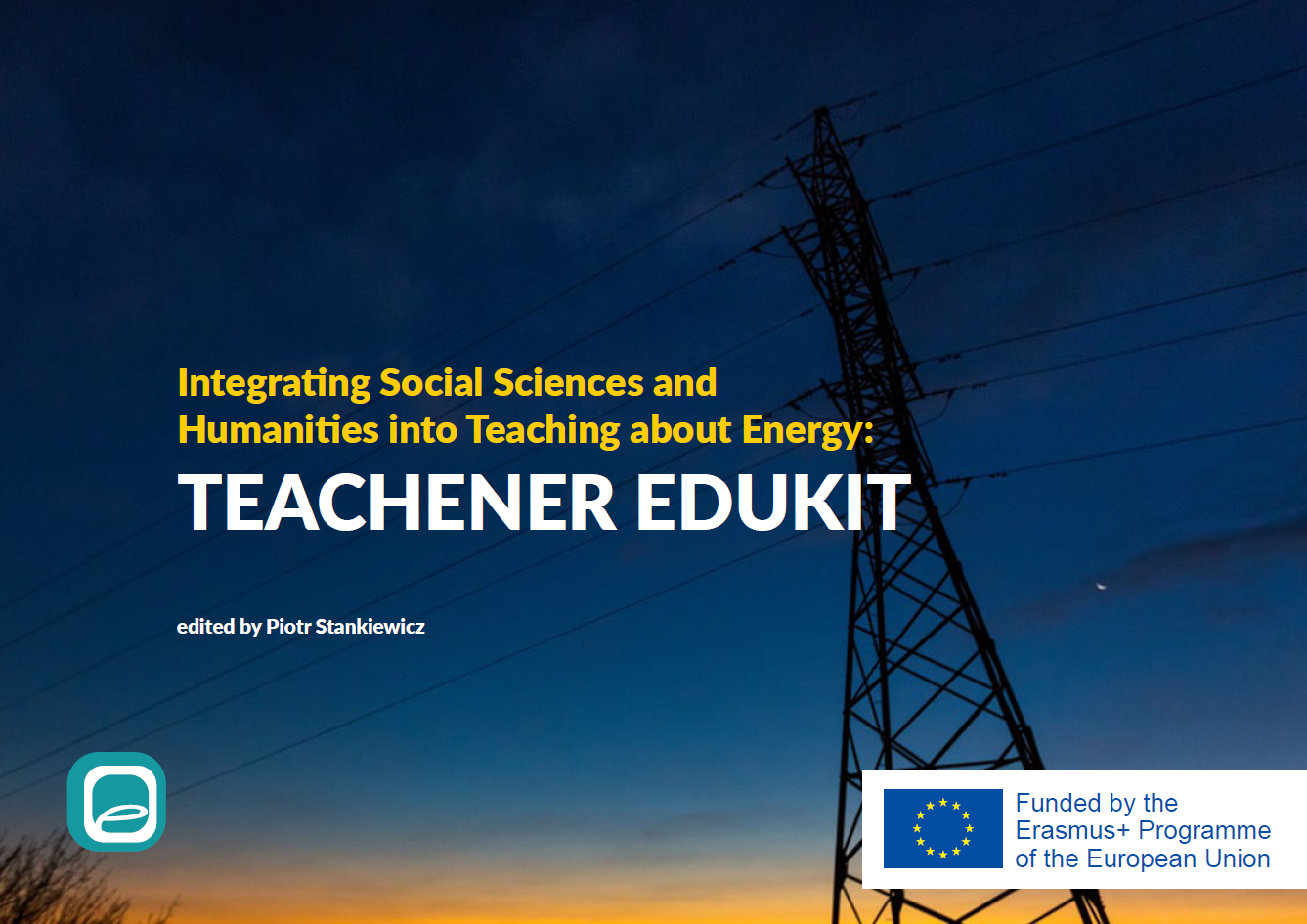Ďurďovič, Martin, Mlynář, Jan. 2019. „Energy and the public. How societies communicate and decide about energy issues?“. Pp. 96‒138 in Stankiewicz, Piotr et al.. Integrating Social Sciences and Humanities into Teaching about Energy: TEACHENER EDUKIT. Toruń: Wydawnictwo Naukowe Uniwersytetu Mikołaja Kopernika. 368. ISBN 978-83-231-4284-3. Available from: http://teachener.umk.pl/teachener-e-book/
As people living in the EU states we take it for granted that a source of electricity will be there whenever we need it. It is a considerably less self-evident matter, how the electricity we rely on is supposed to be produced and distributed. The energy sector stands at a crossroads today and newly emerging options of energy strategies challenge the old ways of doing the business. This module approaches technical students as potential future energy experts, who will need to integrate social or societal aspects of energy issues into their expertise and decision-making. Its focus is twofold: on people as stakeholders in energy issues and on policies and practices of energy governance. These are two sides of the same coin.
Albeit this process occurs gradually and inconspicuously, individuals, communities and businesses learn to think about energy production and consumption in new terms. They explore new views, practices and values, seek opportunities, change their patterns of behaviour, but also feel uncertain about future development, and are sometimes concerned. Energy policies, projects and facilities attract attention, spark public debates and provoke protests. On the other hand, the evolving multi-level political framework of energy governance in the EU conditions this gradual process, in which people assume the role of stakeholders in energy transition. Their engagement depends on policies, (inter)national authorities, state institutions and legally binding rules of the game. The study of the interconnection between energy stakeholders and energy governance obviously goes beyond the purely technical way of reasoning.
Authors
Department
Topics
Civil Society, Public Opinion
